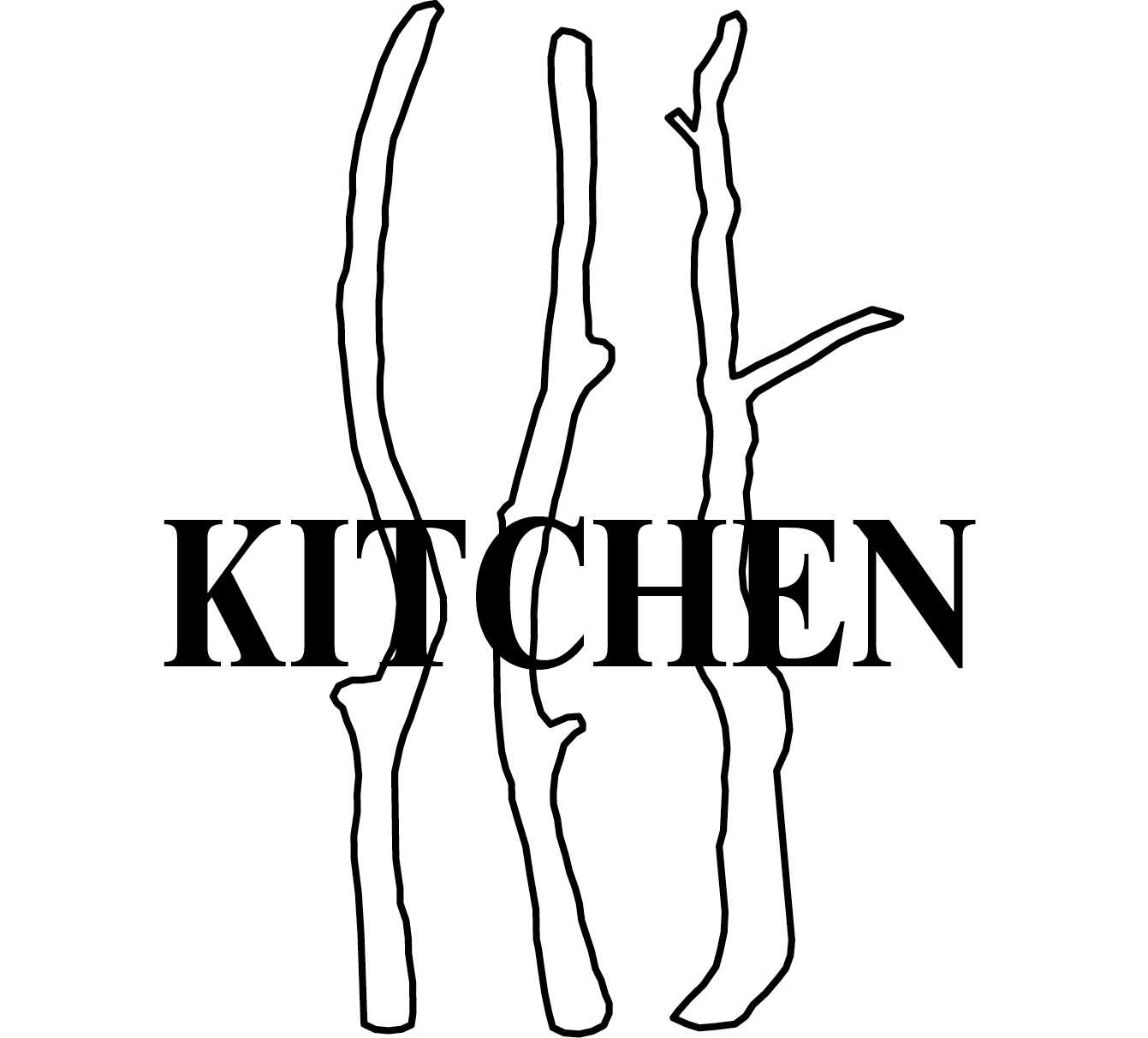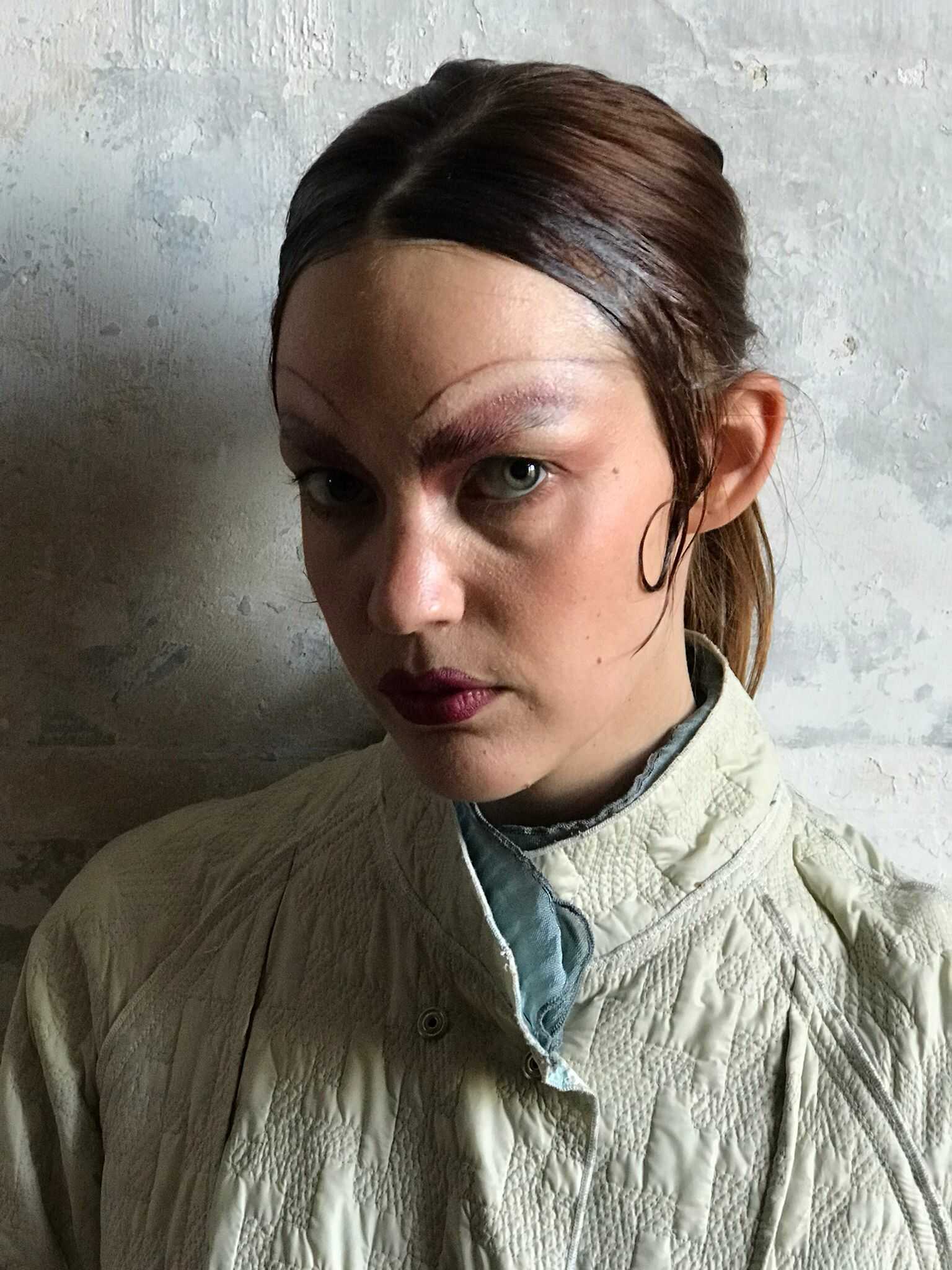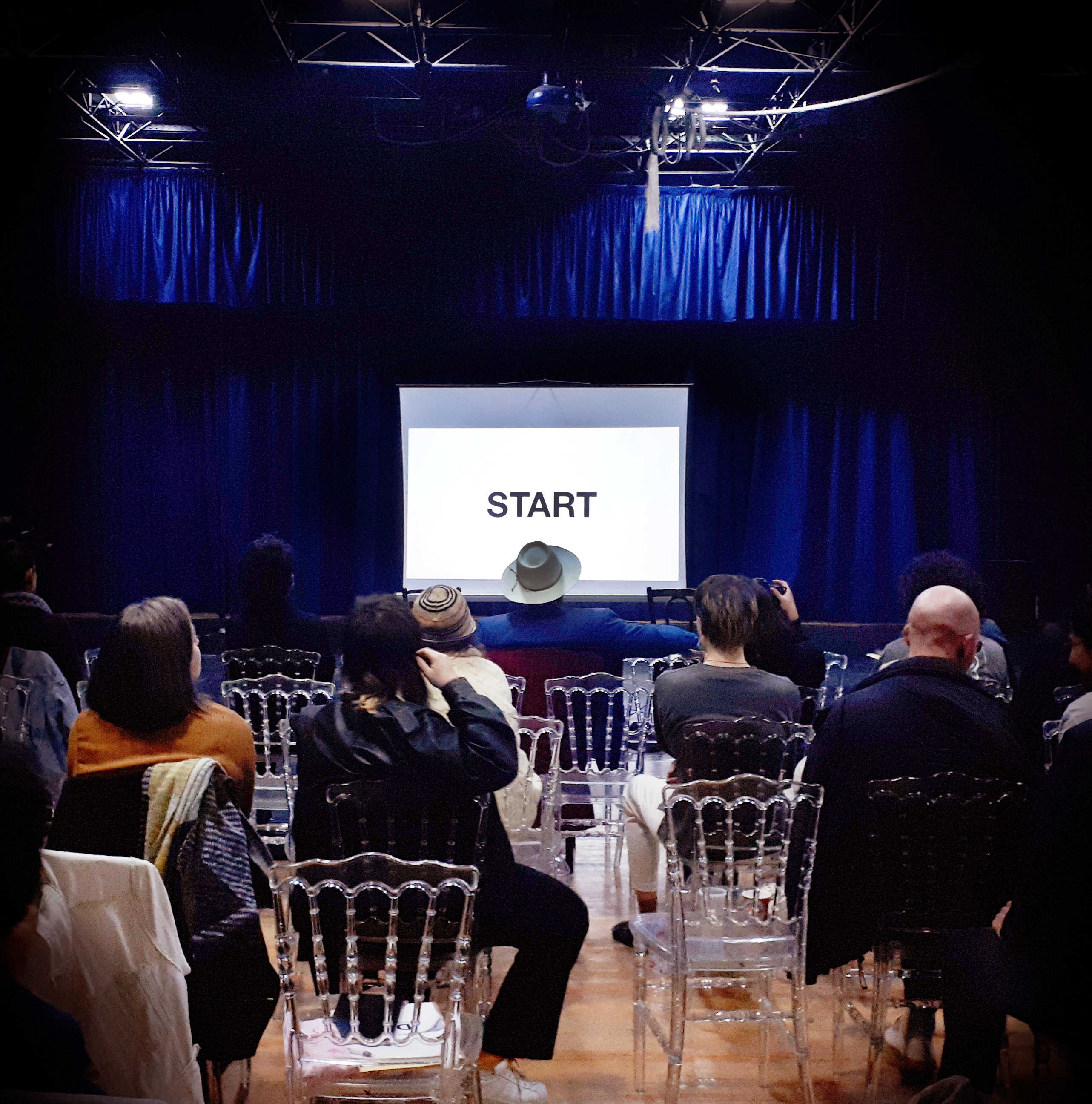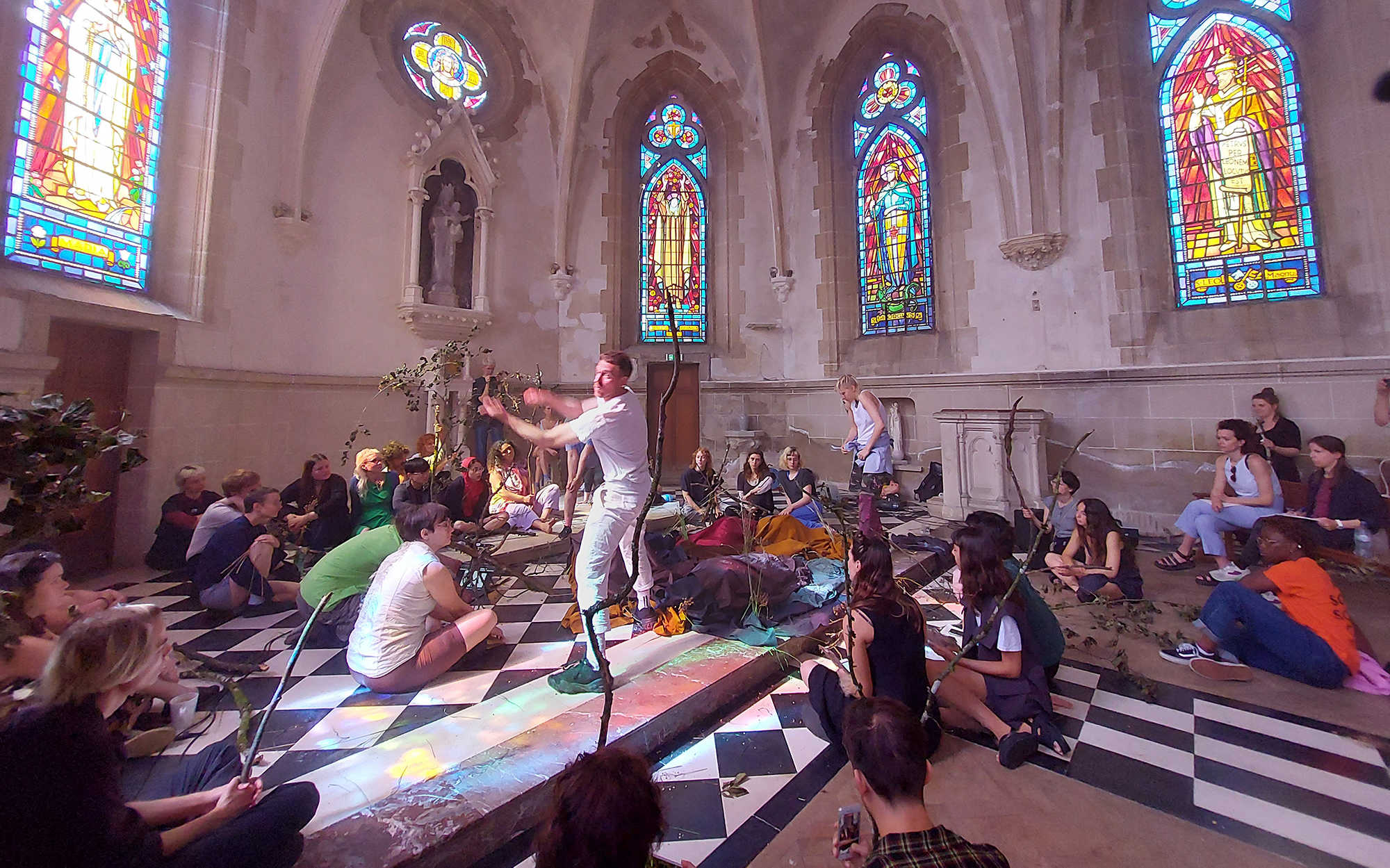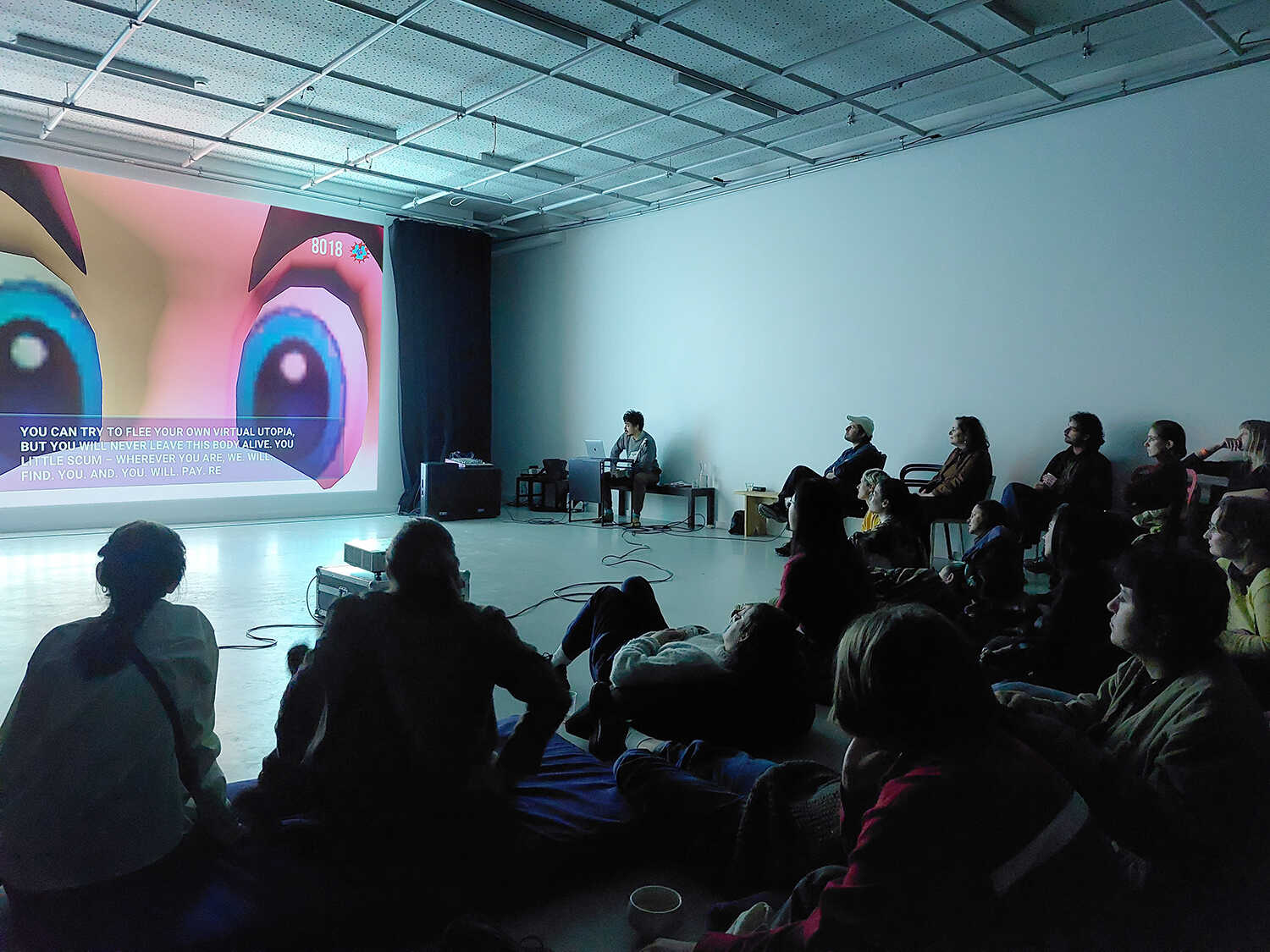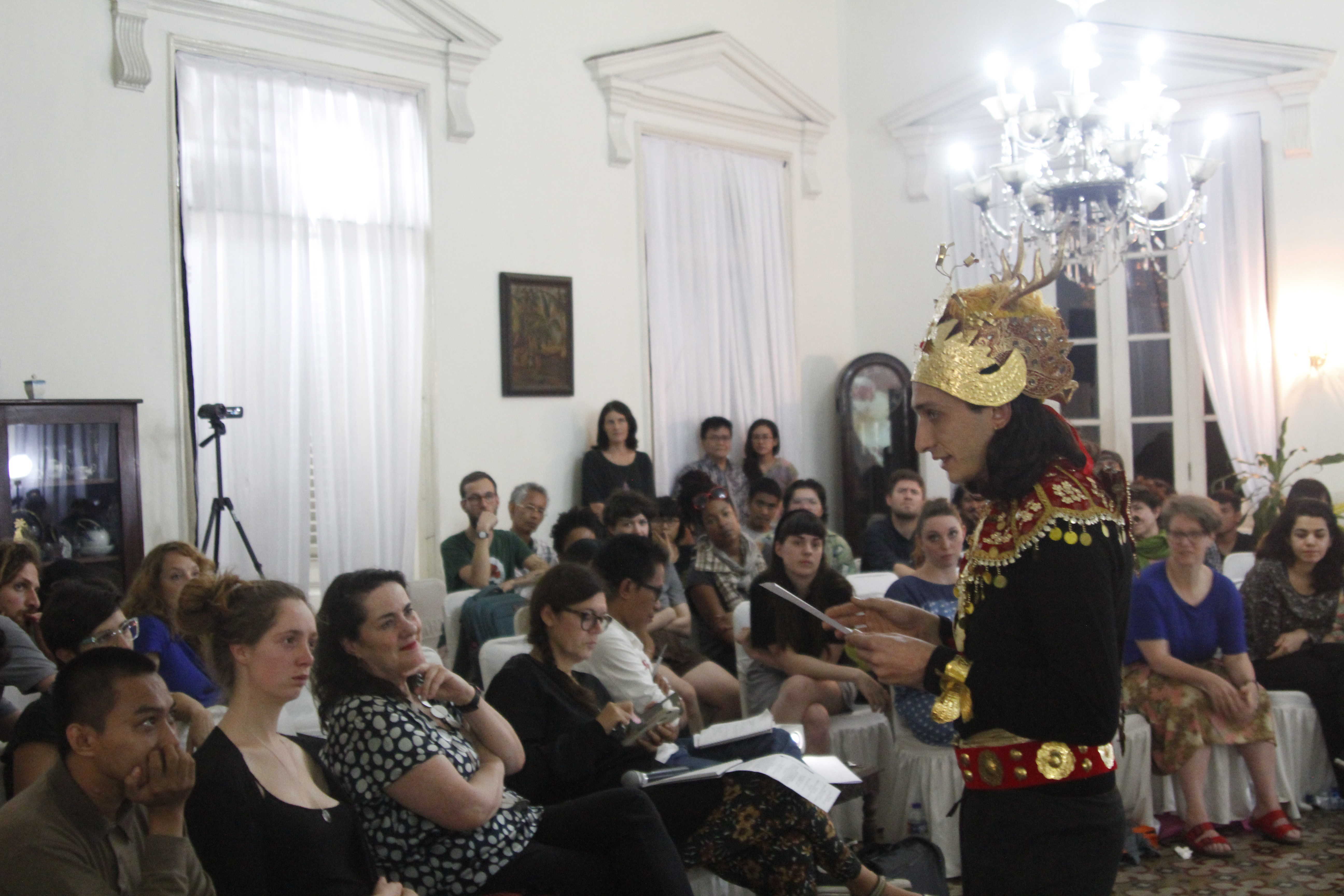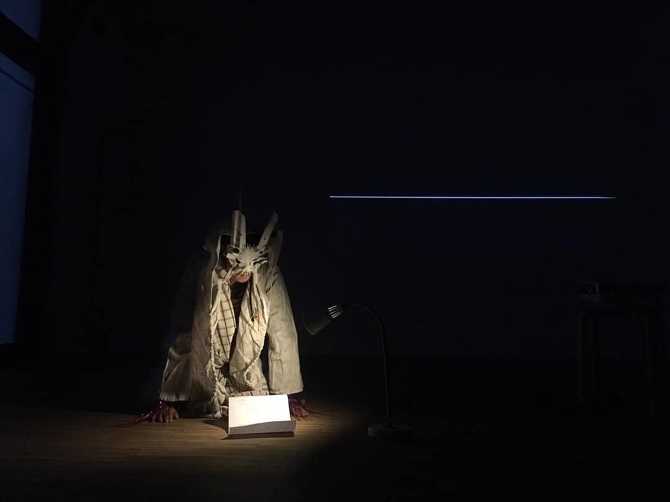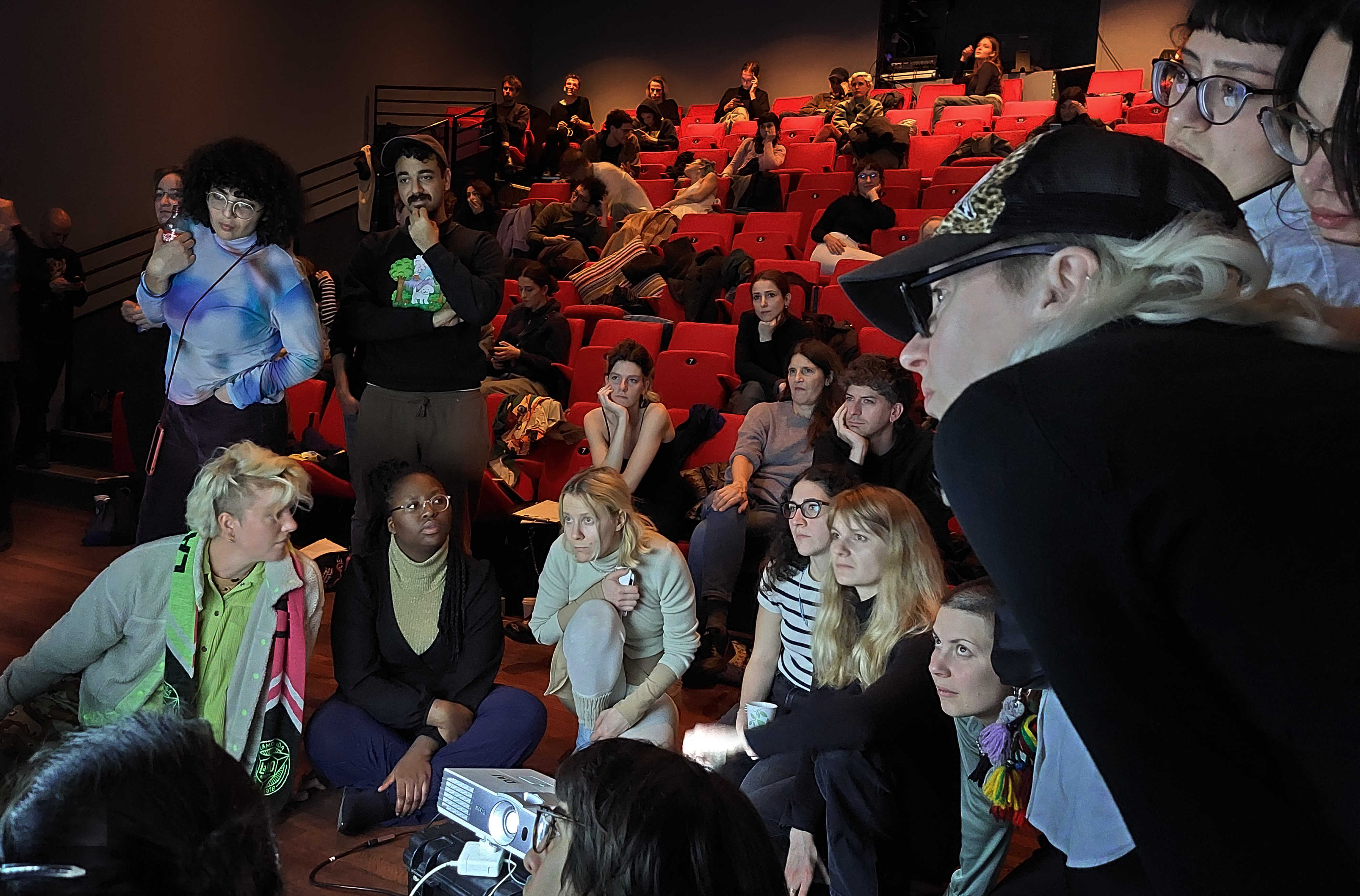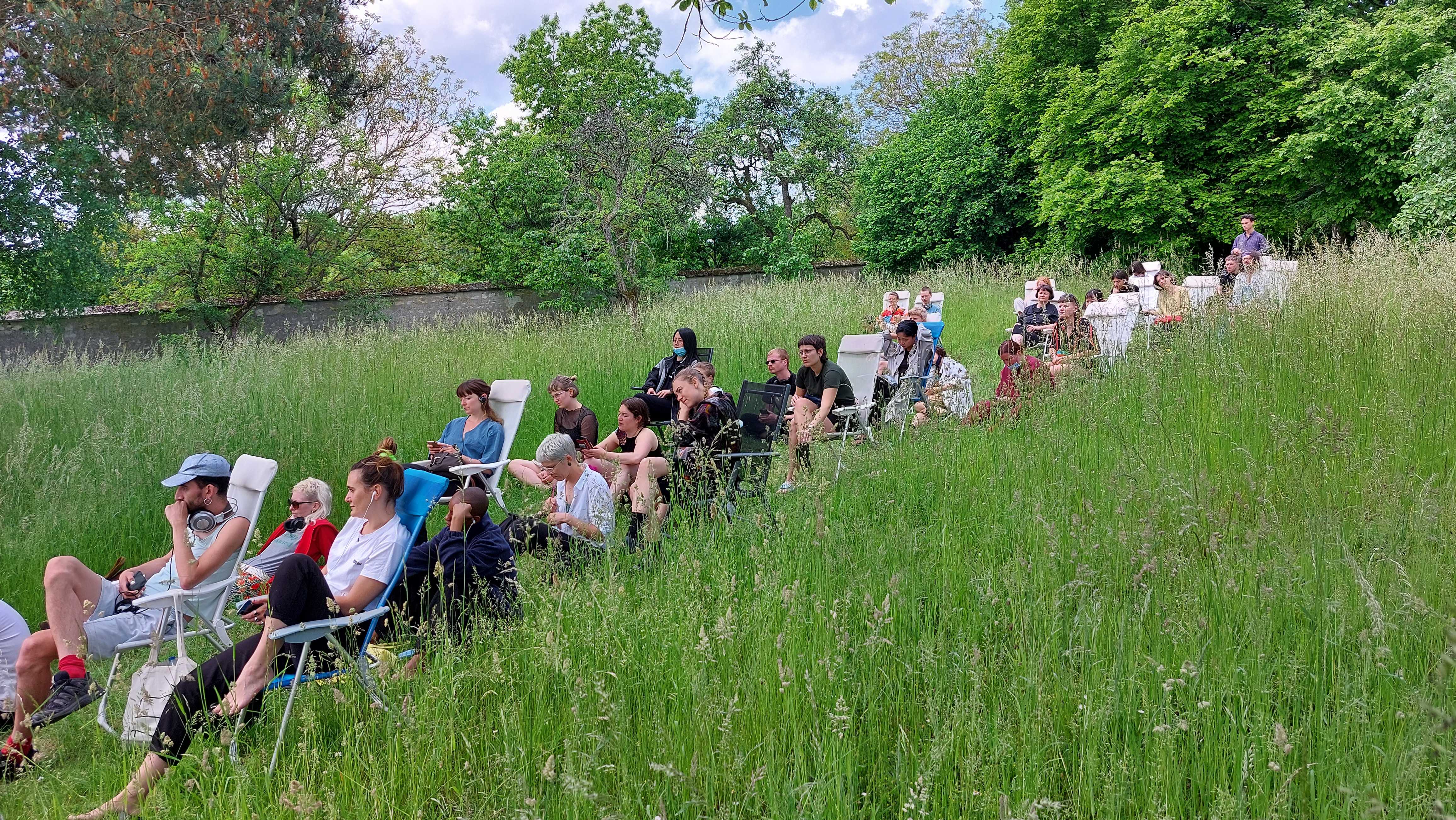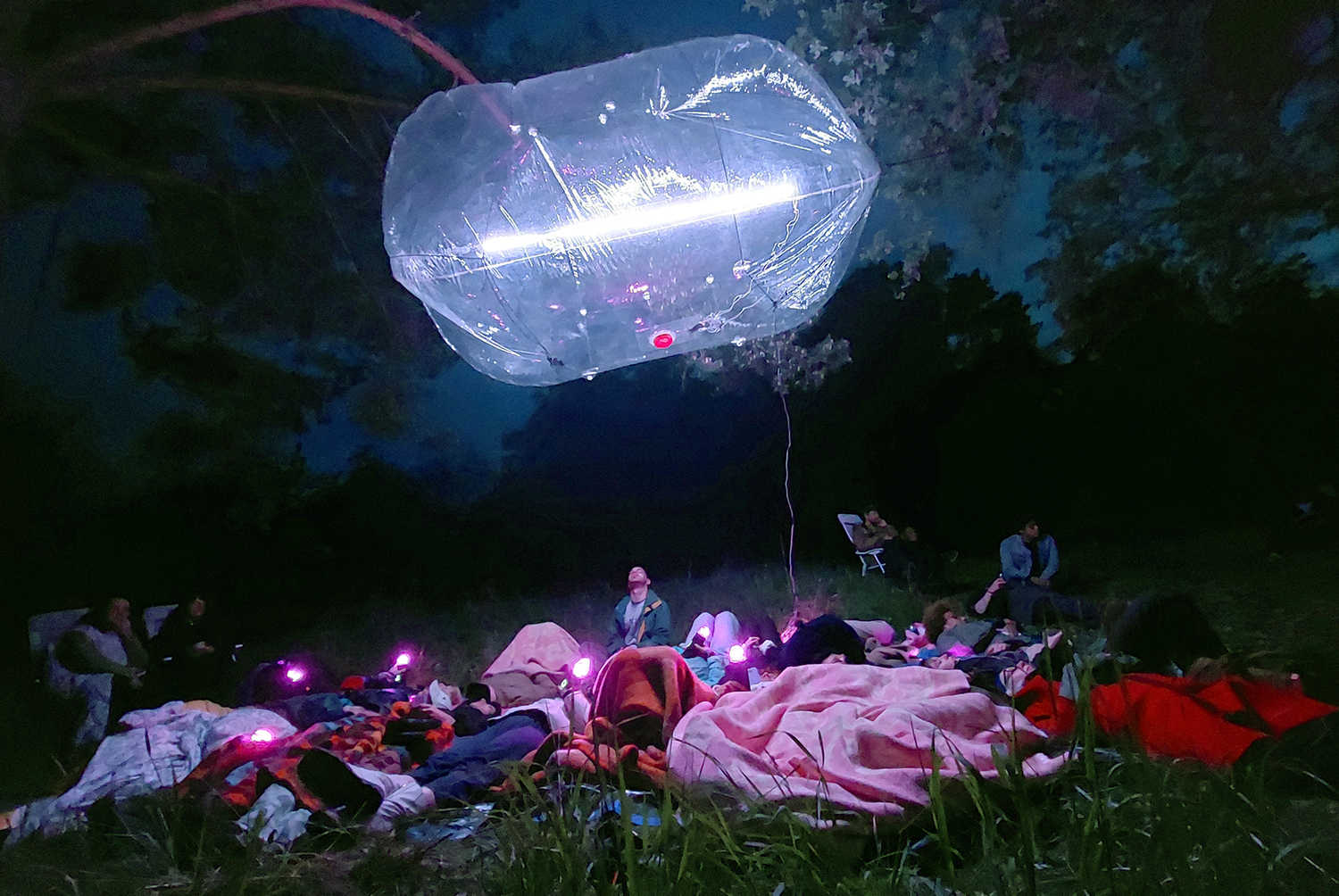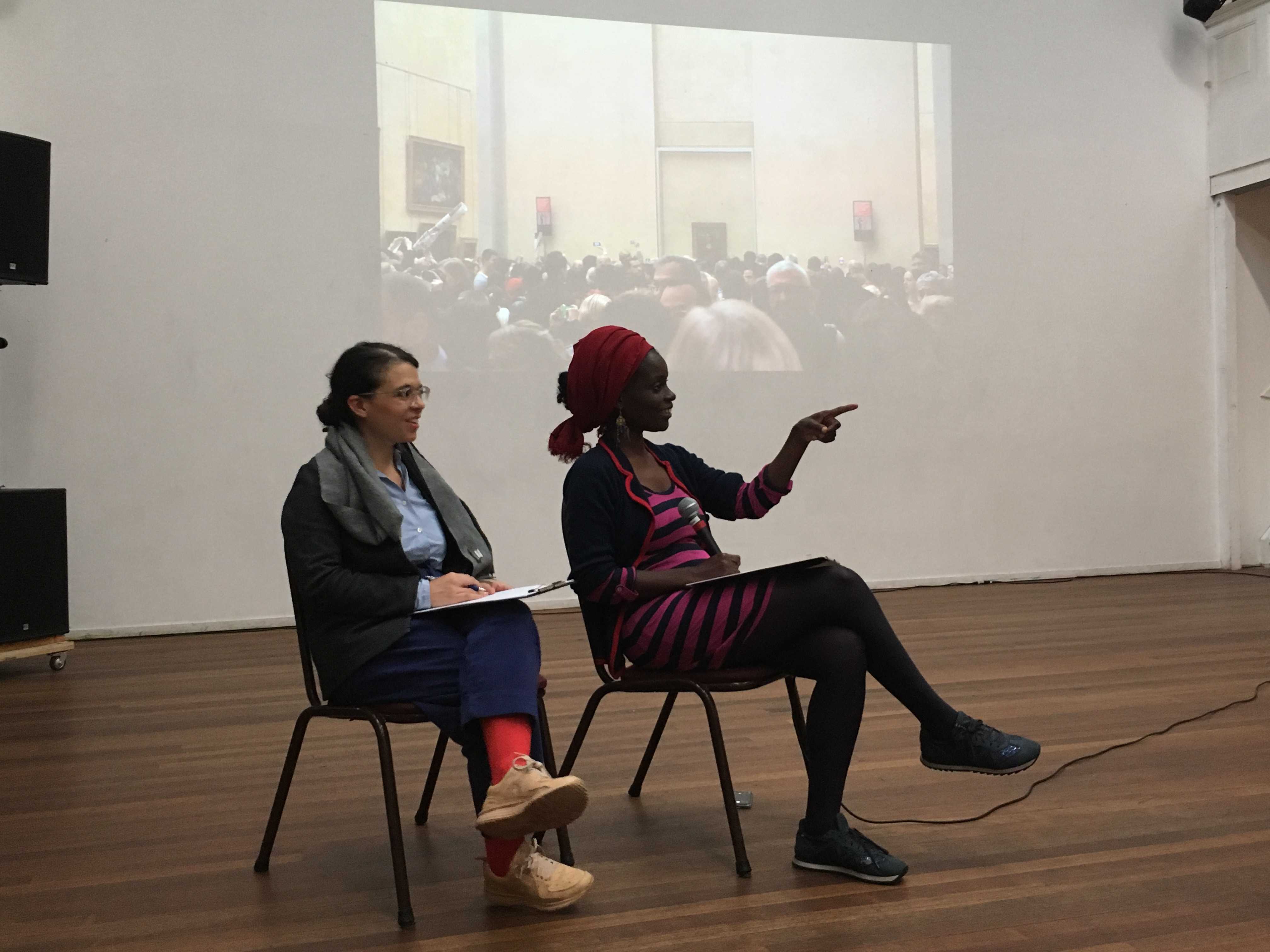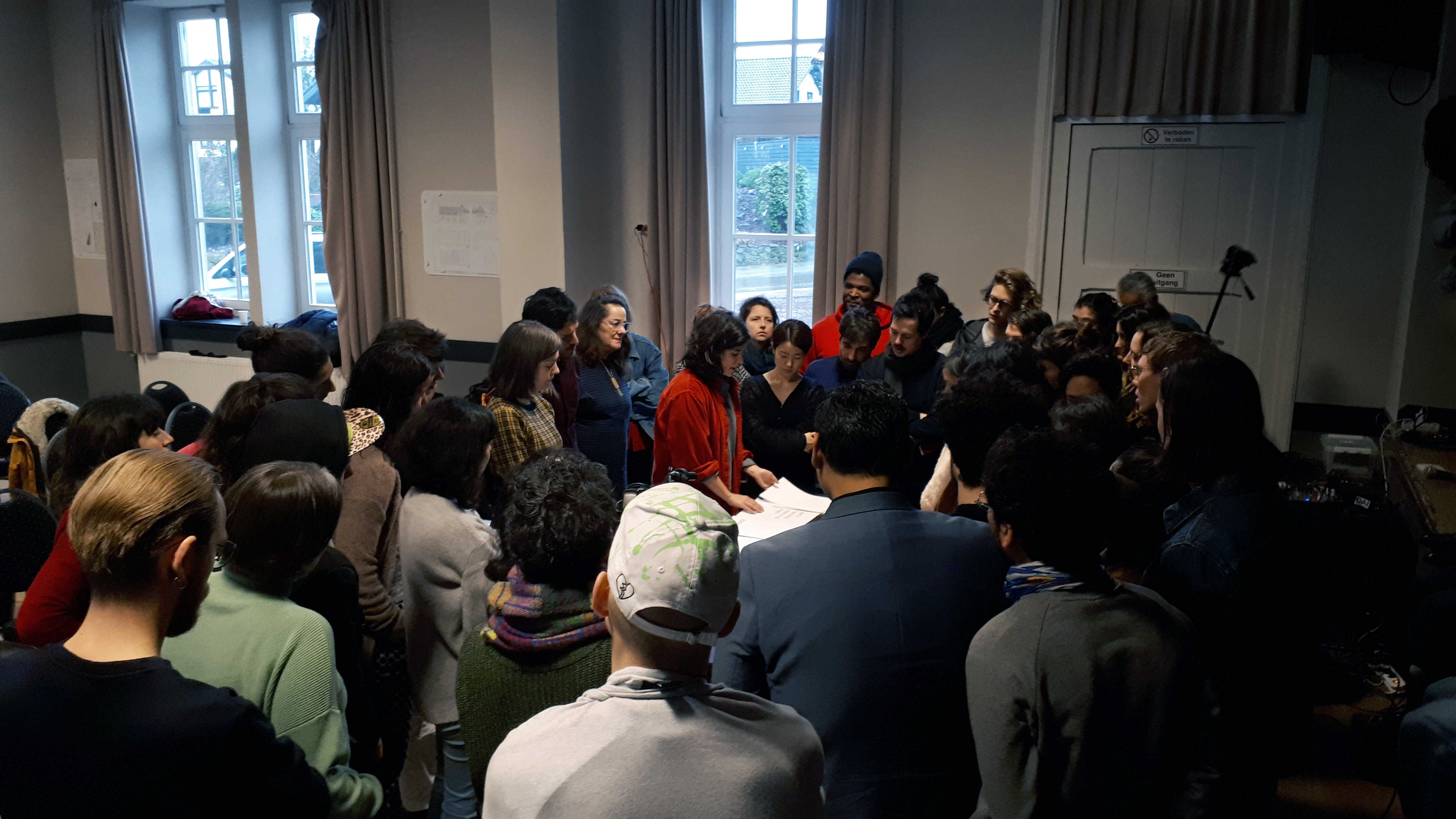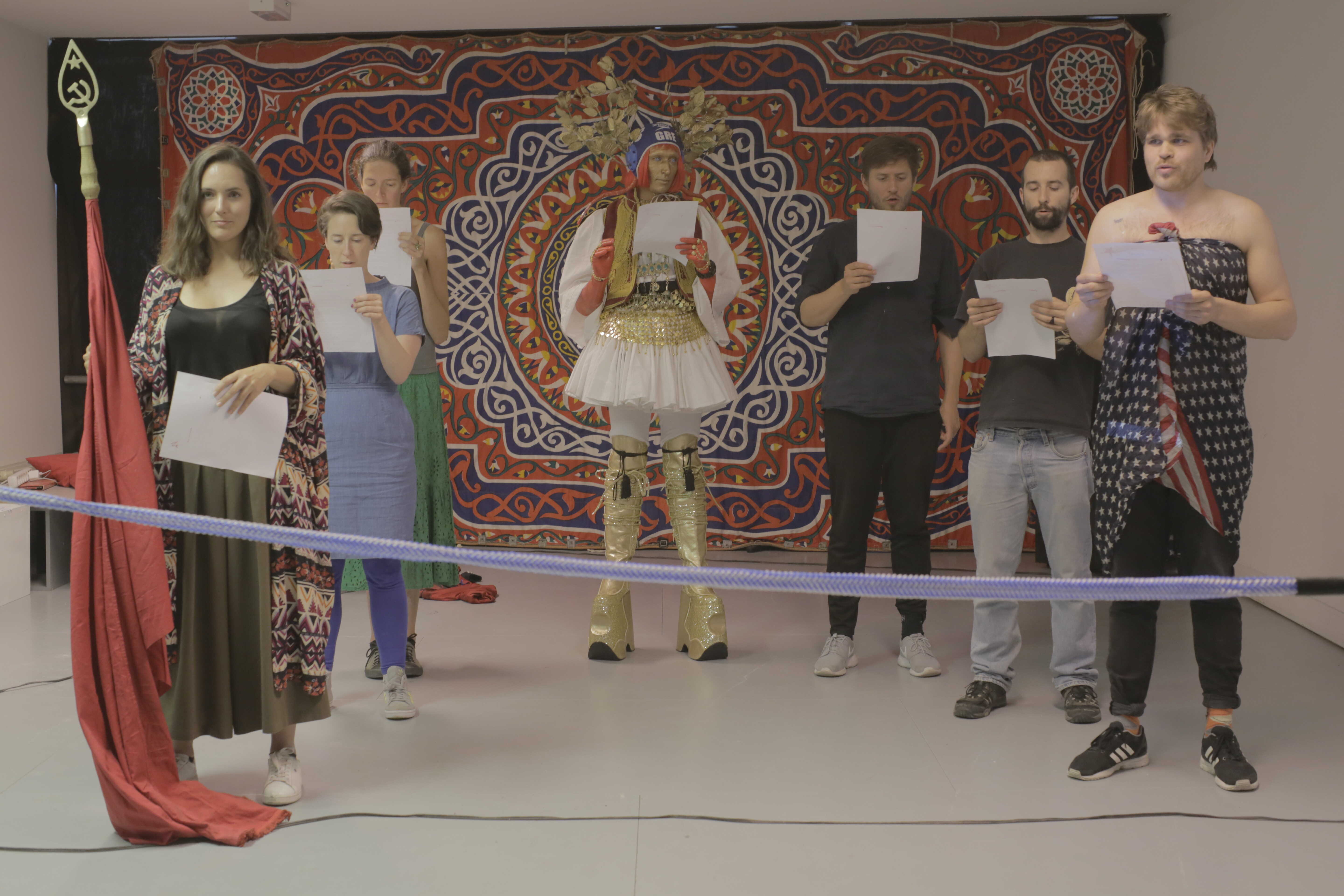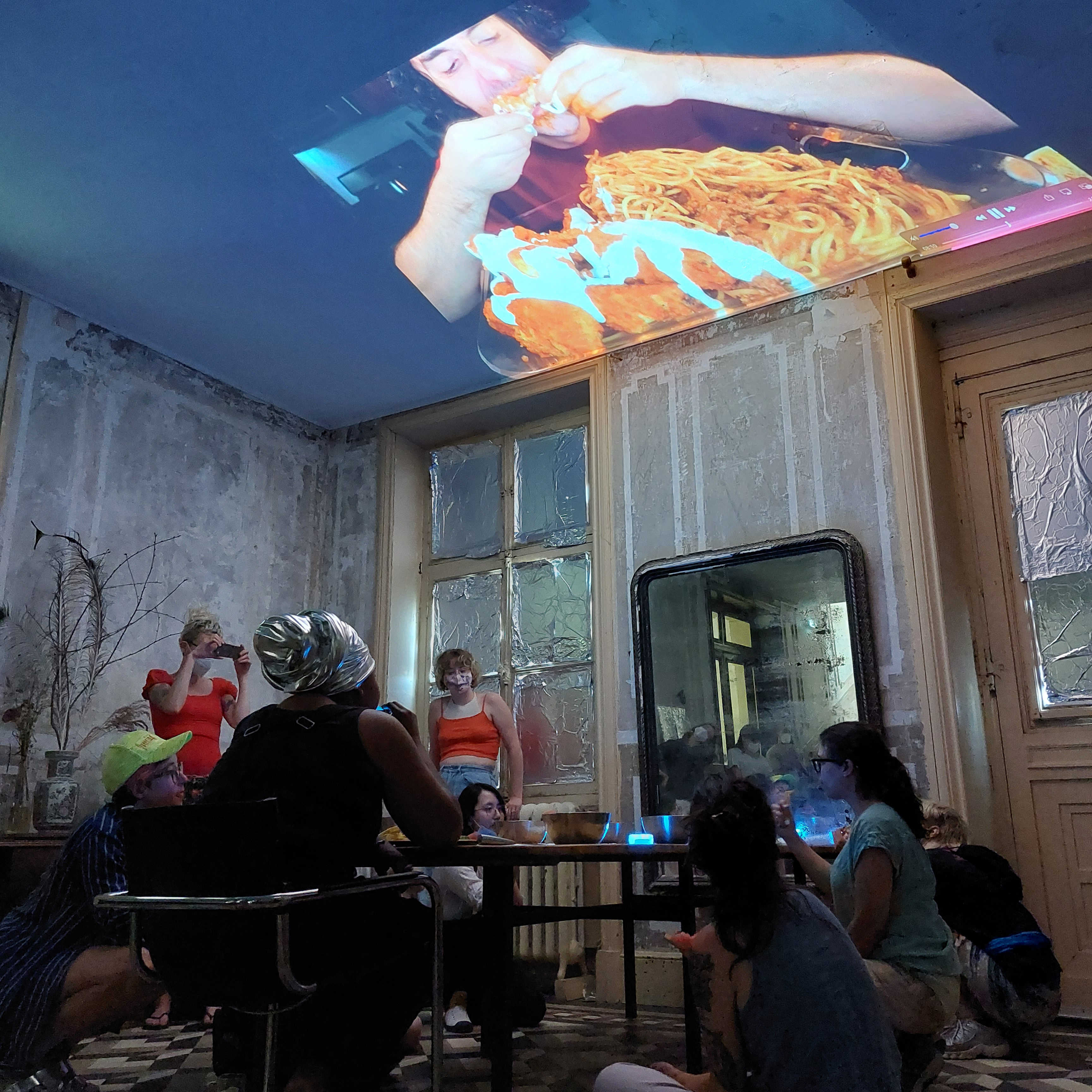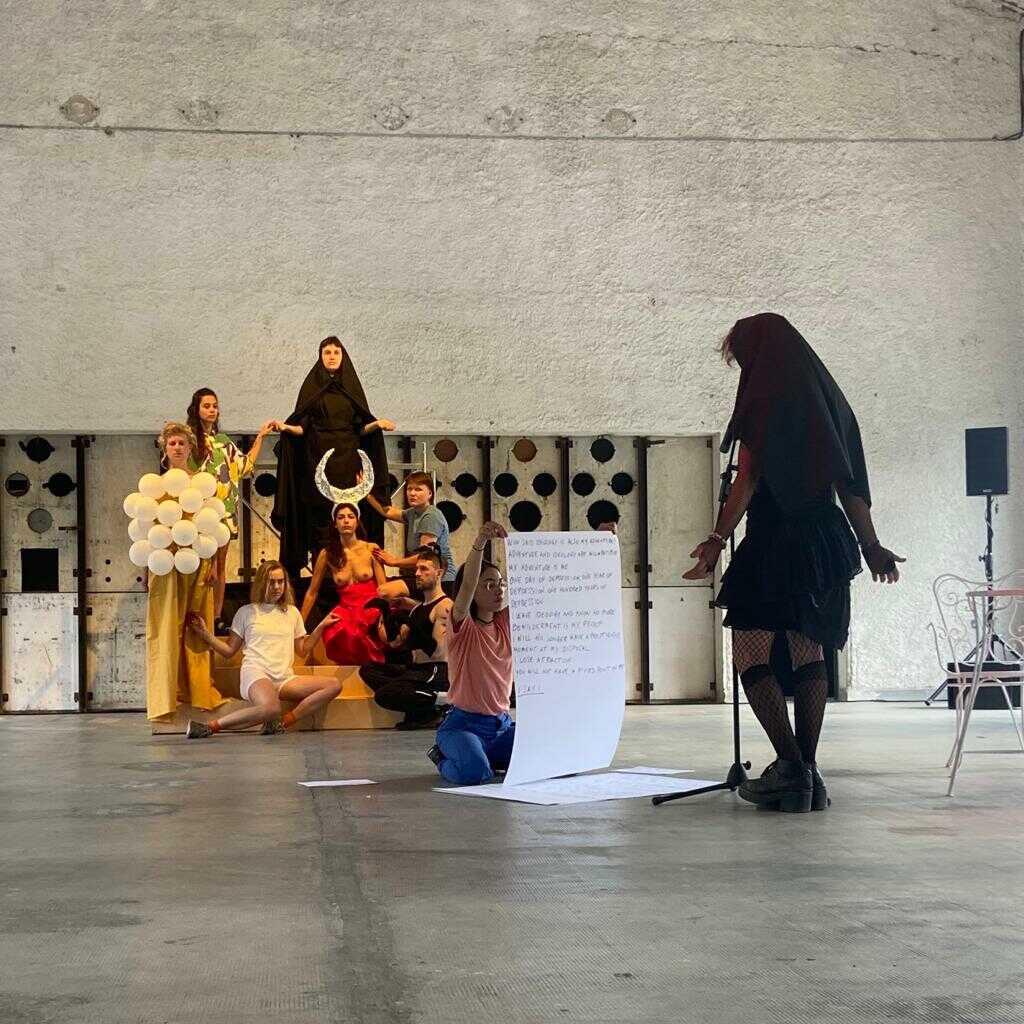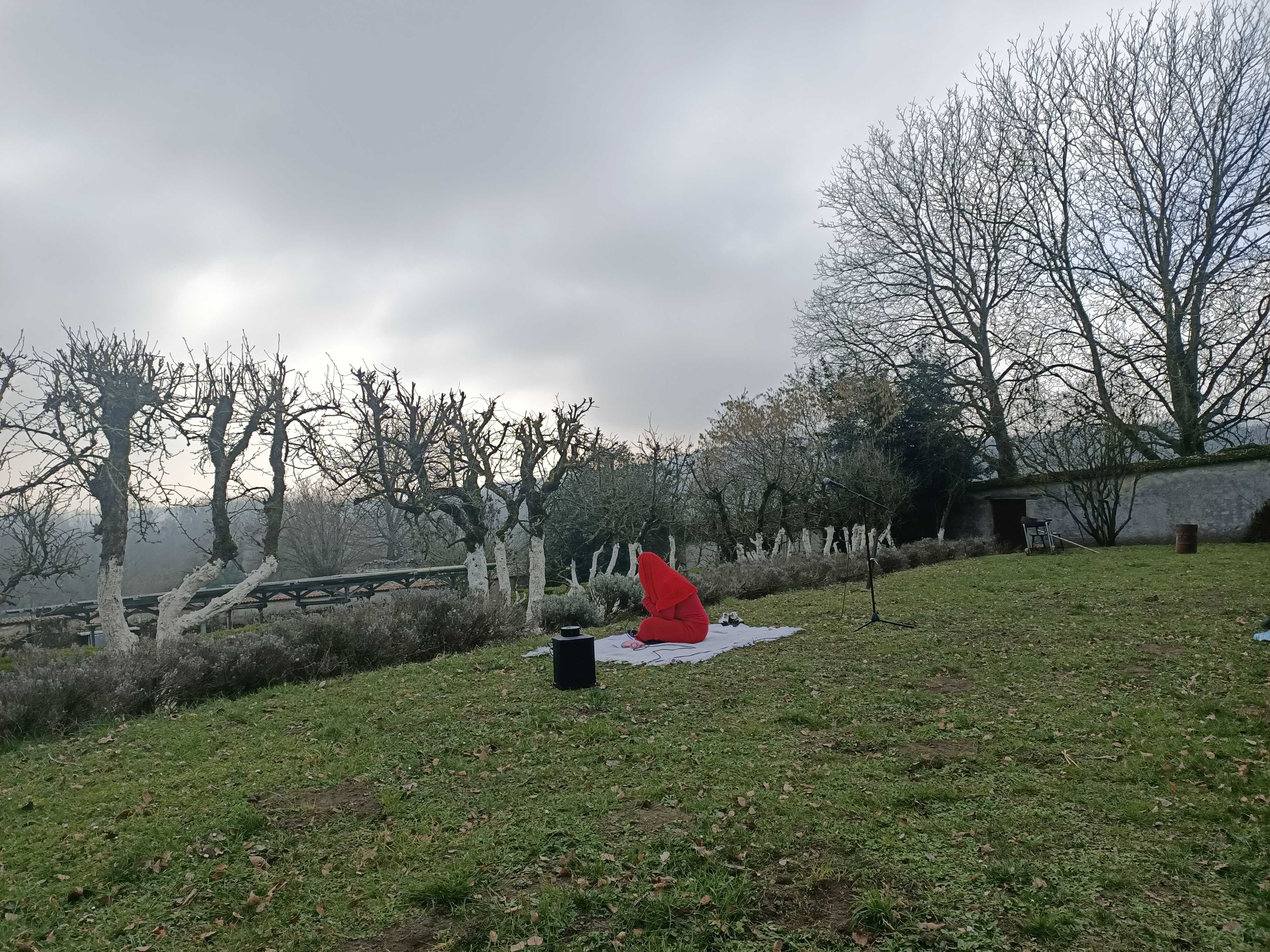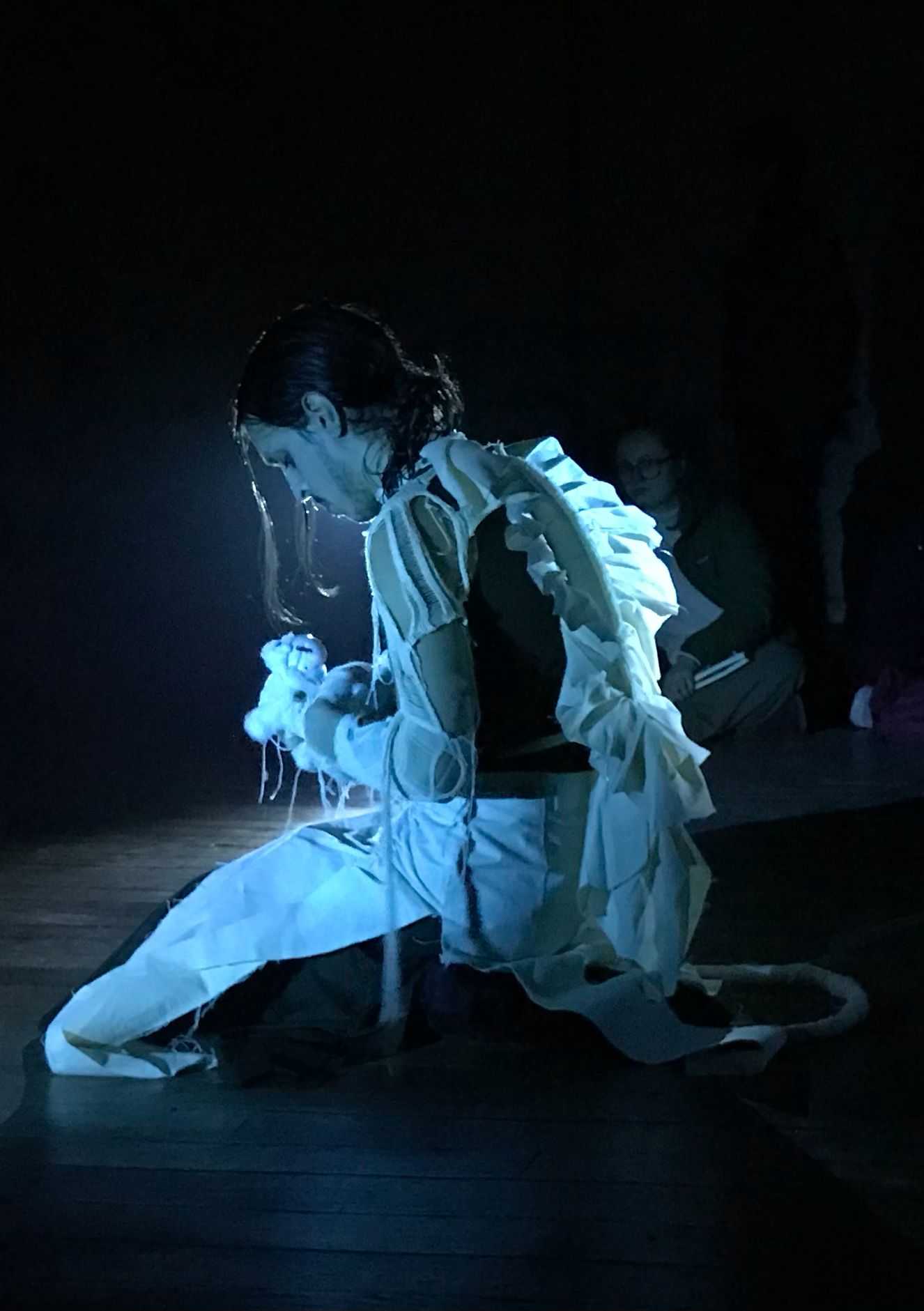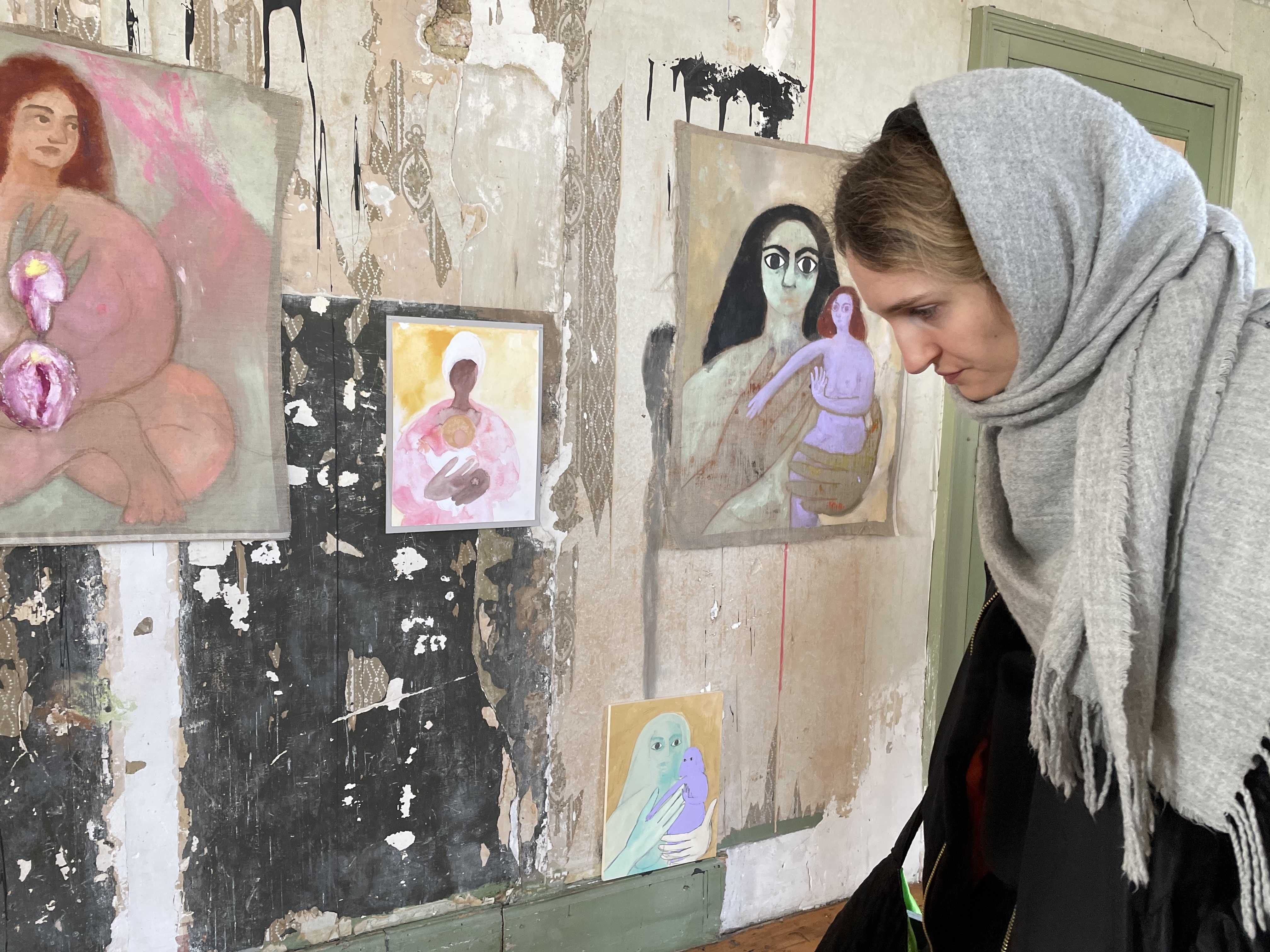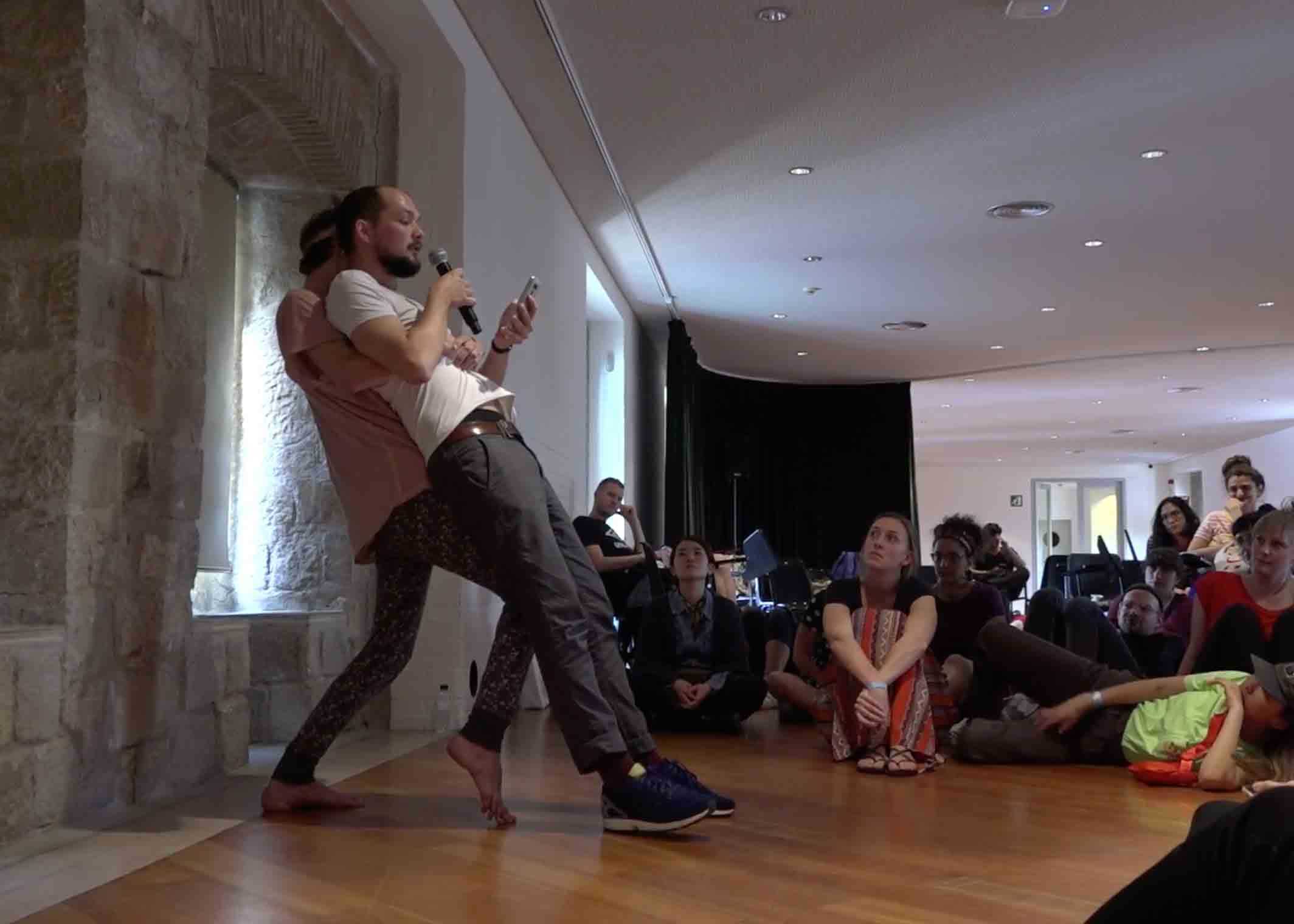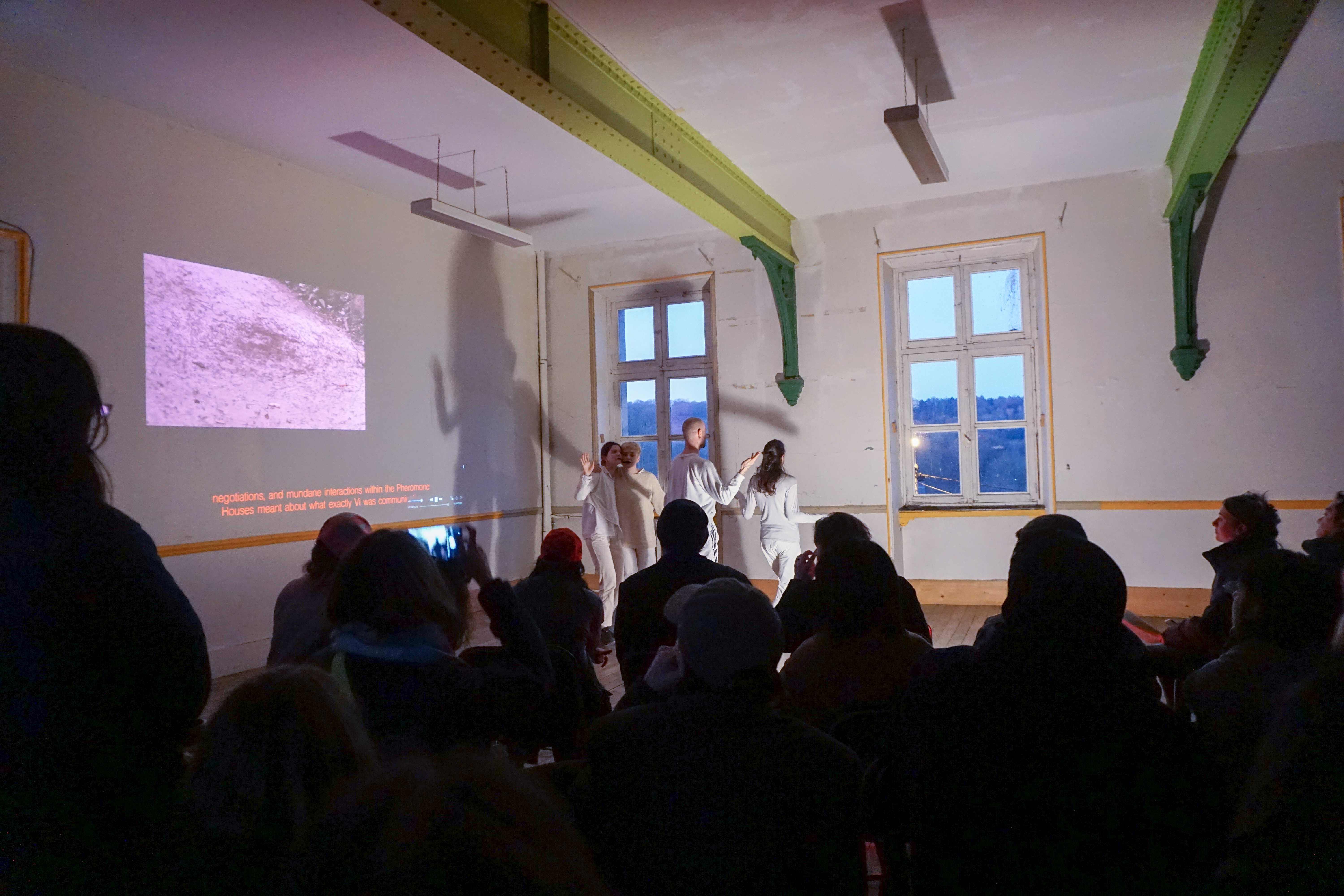2024 - 2025
Click here for the 2024-2025 KITCHEN Schedule
Click here for the 2023-2024 KITCHEN Schedule
Click here to see the formal framework of the curriculum component Kitchen | AEROPONIC ACTS
Introduction
"Let the museums remain empty and the pedestals bare. Let nothing be installed upon them. It is necessary to leave room for utopia regardless of whether it ever arrives. It is necessary to make room for living bodies. Less metal and more voice, less stone and more flesh." ~ Paul B. Preciado
“Orality…is inseparable from the body in movement.” ~ Édouard Glissant
The Kitchen asks each student to present and activate their research in a performative context and offers a sheltered ‘free' space, independent from the other curriculum components such as the curated, collective COOP study groups, or the How To Do Things With Theory seminars.
For the duration of twenty uninterrupted minutes the student presenter is invited to ‘speak’ to an audience consisting of all their 60+ fellow students, 2+ guest respondents, DAI’s artistic director (the convener of the Kitchen), as well as the occasional interested auditor.
For DAI, as Roaming Academy without studio spaces, this is the platform where (self-selected aspects of) individual praxes, are shared with the student body in its entirety, as well as with professional colleagues from a wide variety of "outsides".
The Kitchen parameters change for every DAI Confluence: a new location, a new constellation of Kitchen presenters and new guest respondents.
During a student's two year long journey with DAI, they get to do four (4) Kitchen Acts in total. The fourth, festive iteration draws the trajectory to a close and is branded and published under the name AEROPONIC ACTS.
Each Kitchen Act of 20 minutes is authored and directed by an individual student, but may involve invited "others" as collaborators, assistants or audience-participants. On any given Kitchen day a maximum of 11 Kitchen Acts will be scheduled. Students are requested to attend the Kitchens of their peers, including the responses by the guests - active and committed attendance is seen as an important moment of knowledge production and forms an integral part of the accredited curriculum.
The line-up is curated by Gabriëlle Schleijpen, in close conversation with Peter Sattler. Plans, special conditions and requests (for example when in need of a darkened space) must be discussed in conversation with Peter, latest 7 days prior to the event. It is important to keep track of how the curated line up is evolving, therefore you are advised to regularly check 2024-2025 KITCHEN Schedule. A typical Kitchen line-up consists of performances, screenings, workshops, readings, declamations, short lived pop-up exhibitions or lecture-performances (a format recognized as a unique discipline; a hybrid of research, lecture, visual art and performative narrative techniques): the students are not requested to present finalized art-works, or even art-works at all. The Kitchen is NOT the Restaurant. Rehearsals, rituals, try-outs, one-off outcries: it is all possible. There are no restrictions other than time and space and some basic curatorial guidelines.
Basic Curatorial Guidelines
- Each presenter is, in principle, the director/curator/producer of their own Kitchen Act. This includes taking good care of the well-being of collaborators, of the respondents and of the audience during and also right after the presentation, so that the responding session, can take place in a (relatively) comfortable setting. Chairs should always be made available to the respondents (and to anybody else who desires to be seated while taking notes or for other reasons). The presenter has to take this in account while preparing the space for their Act.
- If a Kitchen Act requests the active involvement and/or assistance of one or more fellow students or others present in the space, this should in all cases happen with explicit permission, requested at least one day prior to the event. The presenter should offer the collaborator(s) or assistant(s) a detailed plan for the 20 minutes and be very clear about the role that will be assigned to them.
- The safety of everybody in the room including the presenter, comes before anything else. It is in no way and under no condition allowed to undertake any actions that can lead to causing (bodily or mental) harm.
- Care should therefore also be invested in regard to violent or offensive content in speech, sound and/or visuals. If in doubt: seek advice from DAI's senior production leader Peter Sattler and from your fellow students, while preparing your Kitchen. If a presentation contains materials that can be potentially distressing to specific people, a trigger warning must be issued.
- It is ok to request the physical engagement of the audience as a group, in a perfomance or other form of presentation, but only under the condition that those who prefer to not participate in a collective exercise or choreography or otherwise, should feel perfectly comfortable to step aside, without having to leave the space.
Welcoming the Response of the Other with a Question as a practice of Engagement.
“.....“responsibility” is not about right response, but rather a matter of inviting, welcoming, and enabling the response of the Other. That is, what is at issue is response-ability: the ability to respond. The range of possible responses that are invited, the kinds of responses that are disinvited or ruled out as fitting re-sponses, are constrained and conditioned by the questions asked, where questions are not simply innocent queries, but particular practices of engagement.” ~ after Karen Barad, 2012.
The presenters are requested to begin their presentation with a carefully crafted key question, offered to the audience as well as to the respondents as an invitation, a way of access - the well-considered opening to a possible chain of thoughts.
Following each presentation, in a conversational mode, the two invited respondents will try to engage with the presentation by means of a fully improvised, non-judgemental, raw, sketchy, tentative, spoken reflection, guided by The Question, and informed by the respondents' own interests, knowledges and questions.
The invited respondents are professional colleagues: curators, artists, directors, researchers: makers & thinkers. They are currently not involved in DAI's curriculum and ideally they join us without prior knowledge of the praxes of the students - thus guaranteeing a fresh and unbiassed outlook on what is presented to them.
The Kitchen is set up as a "conversation-in-a form", with the emphasis on 'form'. The proposition or provocation from the part of the presenter encourages the guest respondents to help the audience think through what has been presented. It goes without words that not everybody in the room will always completely agree with the interpretations, reflections and musings from the part our guest respondents. Discussions, however are directed to the breaks, to the communal lunches and dinners, or alternatively, to the feed back sessions that are organised around the Kitchen Acts. This is to guarantee that every presenter is entitled to the full 20 minutes programmed for their act, which is then followed by 20 minutes response time in total for the two guests. To achieve this strict equitability for all the students, the Kitchen comes with a strict protocol.
Feed-Back
‘Feed-Back Sessions’ are a student-led format to prepare or to de-brief the Kitchen Acts. The sessions are held in small groups moderated by a student and take place on WEAVER days.
Apart from the responses delivered by the invited guests, each student in their first year is furthermore offered one intensive, one-on-one advisory session. For the academic year 2024-2025 we are welcoming Quinsy Gario at Centrale Fies in Dro (August 2025), where he will attend the full 5 days of Final First Year Kitchens, and meet, on an individual basis, with all the presenters in the days thereafter.
Throughout this academic year curator Elisa Giuliani will be attending all Kitchen presentations by second year students, followed by coaching sessions, mostly taking place also during the DAI Confluences ( Nida 2x, Nicosia, Middelburg). The schedule will be published here.
Finally: during the days after their Kitchen presentations each of the first year presenters is invited to engage in a f2f meeting with Gabriëlle Schleijpen, DAI’s artistic director|head of program. Departing from what has been expressed by means of their Kitchen Act, this conversation can serve as a focussed moment for sharing any relevant personal questions, concerns, ideas and proposals in regard to art, research, life & DAI (in any desired order). Please find the schedule here.
Documentation
During the year the regular Kitchens (1,2,3) are to be documented by the students themselves: visual documentation accompanied by "the question" and ideally with notes on the content and the responses. This documentation will be collected by student assistant Foad Alijani and is to be uploaded on your closed student page. In regard to publishing Kitchen on your social media: please note that it is not allowed to make the responses by our guests public without their permission.
The final Kitchen presentations at the end of the two year study trajectory at the DAI, coined AEROPONIC ACTS will take place in front of an audience. They will be live-streamed, filmed and photographed. The resulting video registrations plus written reports by a guest writer form an integral PUBLIC part of the AEROPONIC ARCHIVE and all students are requested to take this in account when designing their act.
The ‘Kitchen’ was founded by DAI around 2007 and molded and sculpted ever since.

